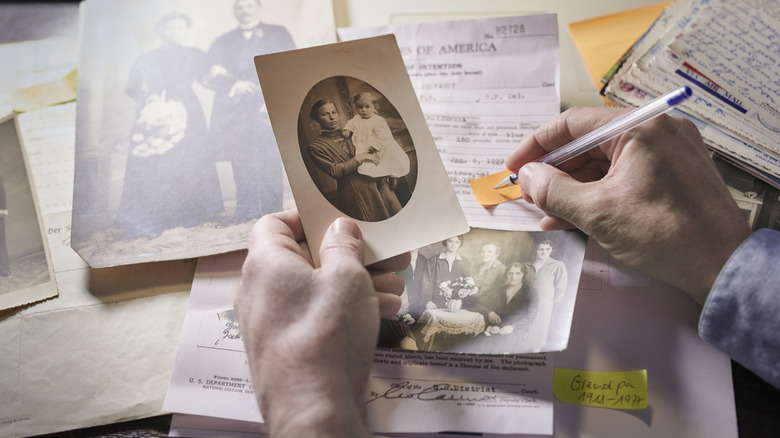Why 'Genetic Tourism' Is Becoming More Accessible, Affordable, And Popular Than Ever
American travelers are finding a new source of inspiration for vacation planning: the family tree. For those who grew up with immigrant parents and grandparents, tales of a distant homeland may have planted a seed of desire for a trip abroad to see the country where those stories and traditions come from. For some, the mission has a distinct goal of tracking down information about their family's past or even gathering documents to acquire foreign citizenship. Others may just be content to visit the major cities and try their favorite family recipes in the places where they originated.
I was one such traveler when I tracked down my great-grandfather's birthplace, a small town in Southern Italy. The mission brought me to a little-known region of Italy and the underrated ancient city of Matera, where I could feel connected to my family's past while gleefully buying wine bottles and other products that featured my regionally common surname.
Genetic tourism is a wonderful way to connect more deeply and personally through the history of a place while learning more about your ancestors' histories. Here's how to begin planning a trip inspired by your family heritage.
How to learn more about your heritage
Some people start by looking up the origins of their last name or following the threads of family stories that have been passed down over time, but there's nothing that can give you a more accurate picture of your unique genetic heritage than a DNA testing kit. Over the years, genetic testing has ballooned into a multibillion-dollar industry, and there are many options out there for people who want to learn more about their ancestral roots. The self-administered test kits, which usually just ask for a cheek swab or a blood or hair sample, can be ordered online. Some of the most popular companies are AncestryDNA and 23andMe, whose kits start at around $100.
When you get your report back, you will have a summary of your genetic origins broken down by ancestral regions by percentages. If you always heard rumors of an Italian grandmother or Polish great-grandfather, these reports might be able to help you discriminate fact from fiction. If you already know where your ancestors are from but aren't sure of the region, you can do some digging on genealogical databases like Ancestry.com and Family Search, two of the most popular online resources for finding family records.
How to plan a heritage trip
Depending on how far you take your research, you might only learn about your ancestors' countries of origin. If that's enough to satisfy your curiosity, maybe plan a visit to the capital or a tour of its top destinations — for families with Portuguese lineage, visiting Portugal's breathtaking beaches and spending a week in Porto or Lisbon might be enough. If you want to go deeper though, many tour companies specialize in building itineraries based on your family history. You will have to search by region to find these specific tour companies. To travel deeper into the Sicilian side of my family history, I personally used Sicily Routes to organize a trip for my whole family because the tour company offers both genealogical research and bespoke trips. Similar services are available in other countries with companies like My Ireland Family Heritage and PolishOrigins Genealogy Tours.
Of course, not everyone will have the privilege of being able to access genealogical records in addition to their genetic data, especially for African Americans whose family histories and lineages were affected by centuries of oppression and the Transatlantic Slave Trade. Despite this, the Black heritage tourism movement is growing strong with domestic experiences like a Civil Rights Trail road trip and foreign tour companies like Uprise Travel that specialize in curating itineraries in West Africa. The company even writes on its website that many clients do DNA testing before arriving to tailor their itinerary to their ancestry. Of course, you could always DIY a genetic tourism trip if you have enough information, but help is out there if you need it.


